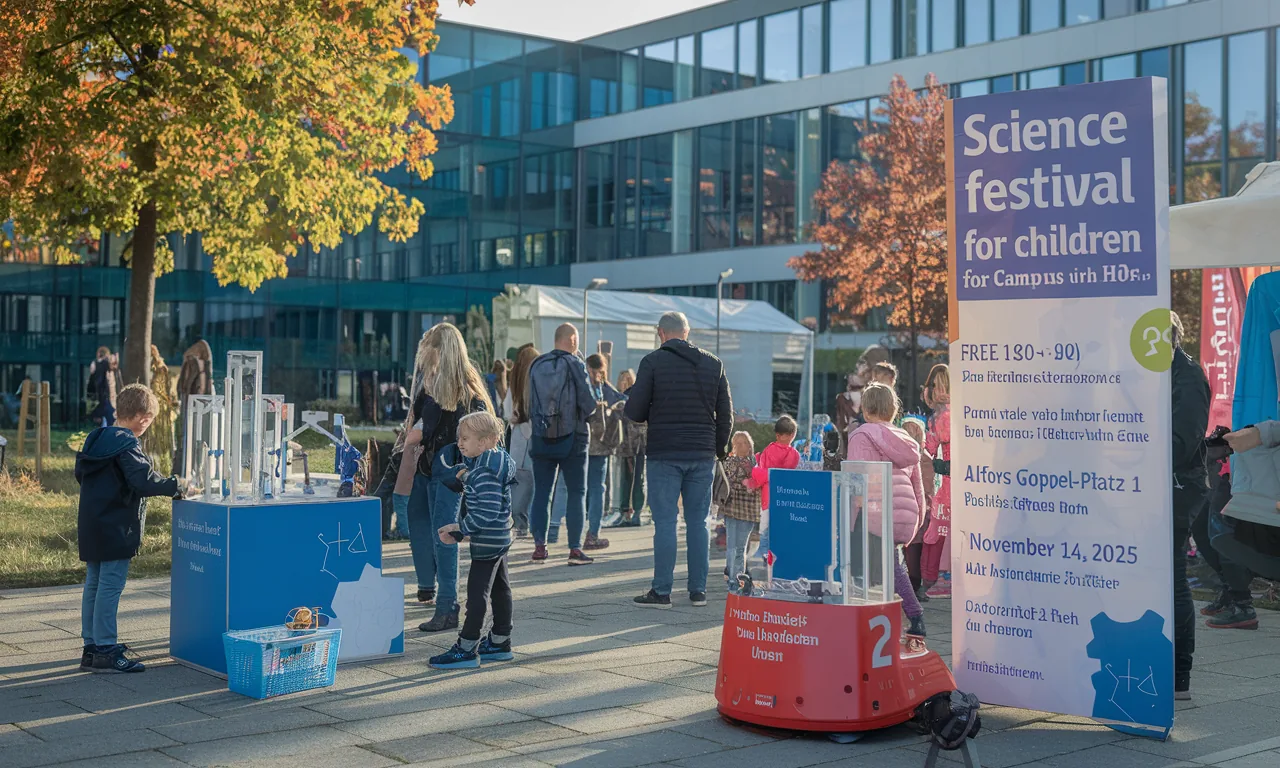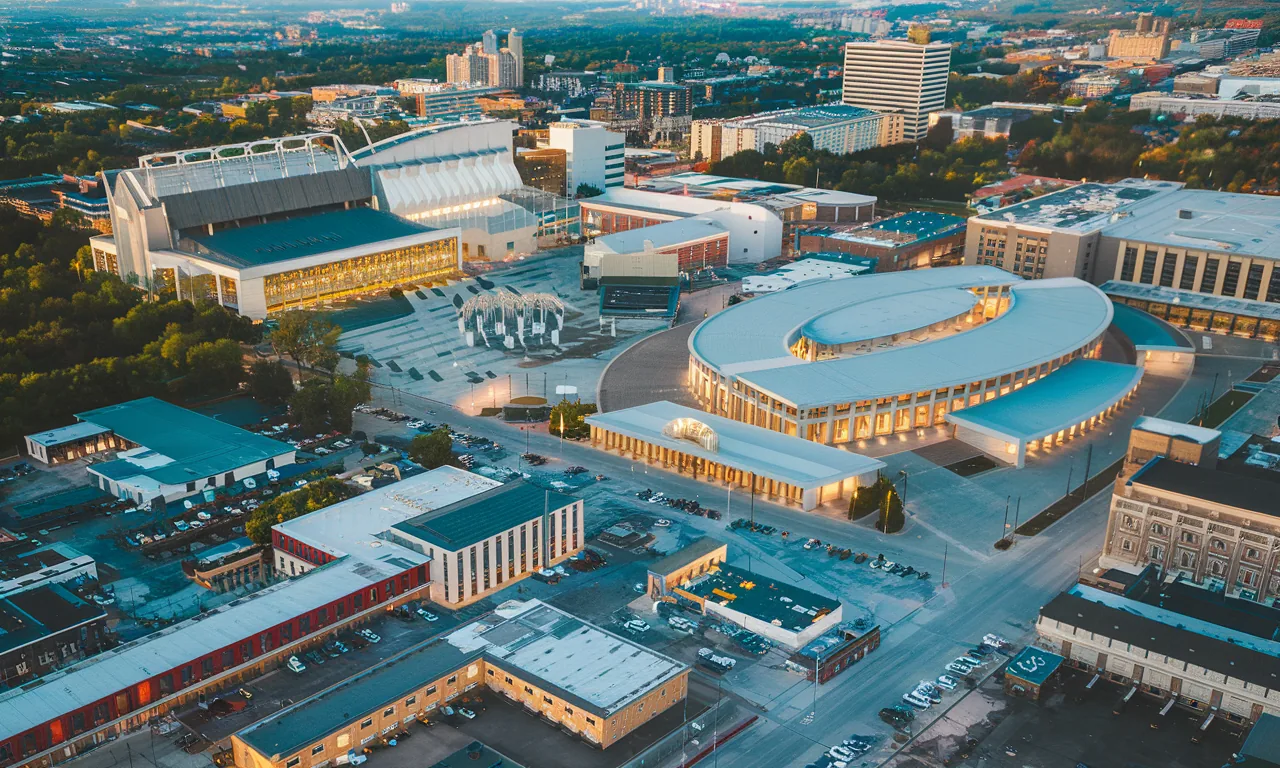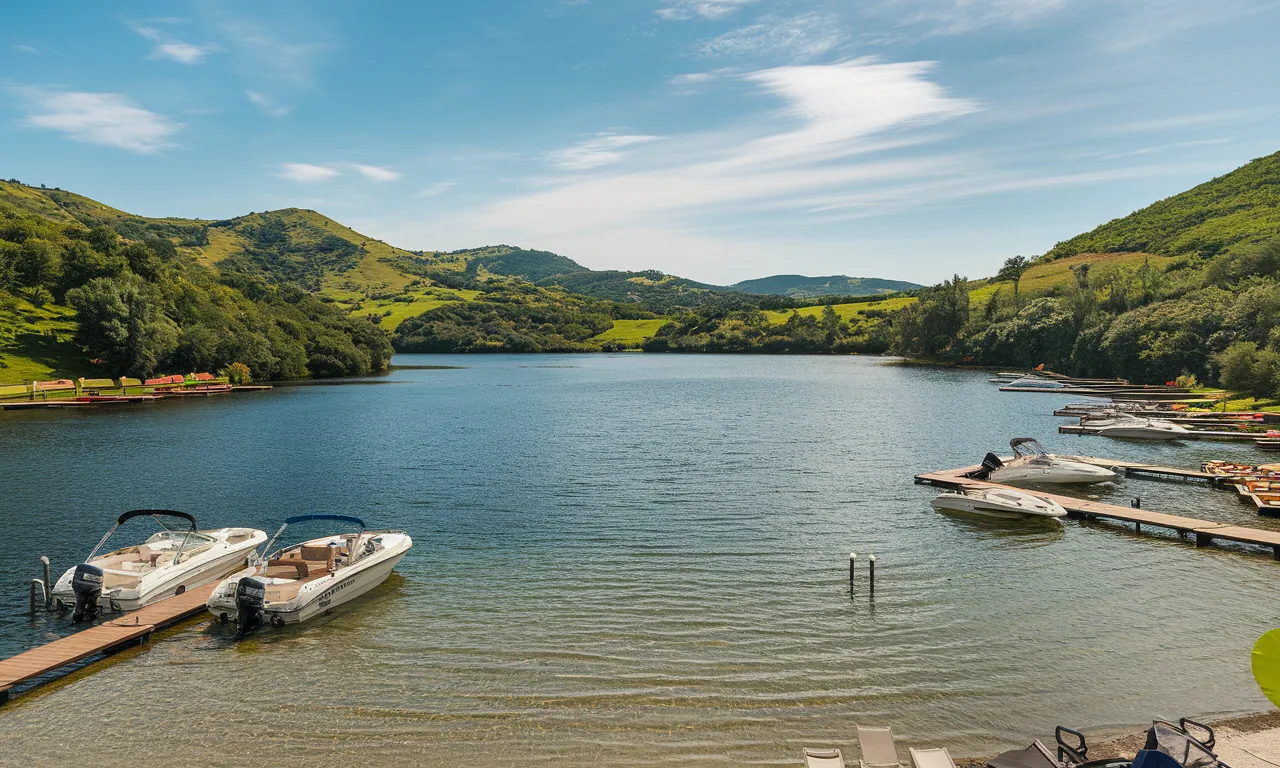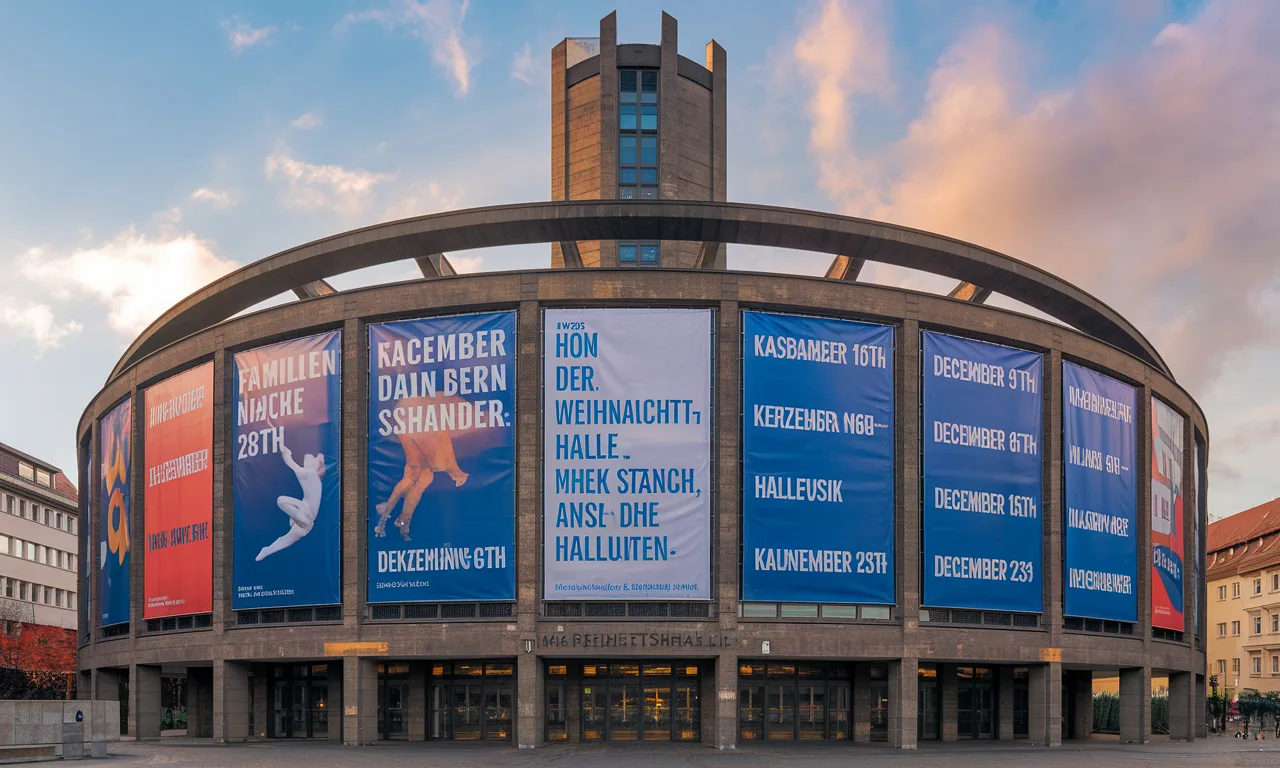Children’s University & Sciences in Hof: Dates 2025
Children's University & Science Events in Hof 2026: Preview, Program, and Planning
What do a pizza break and sheep's wool have to do with great science? Families in Hof will experience this at the next edition of the popular science formats on campus – with hands-on stations from 3D printing to robotics, well-explained workshops, and plenty of room for wonder.
This guide compiles all currently known key points, useful preparation tips, and reliable sources so you can confidently plan the upcoming 2026 events.
Preview 2026: Night of Science & Children's University Research Day
Night of Science – expected in November 2026
Location: Campus Hof, Alfons-Goppel-Platz 1, 95028 Hof • Target group: Families, pupils, students, interested parties • Format: Evening event with many hands-on activities across the entire campus
Expect live experiments, short lectures and science shows, interactive stations on robotics and AI, a family-friendly rally, and food stalls. Some program points may have limited capacity; arriving early is worthwhile.
Children's University Research Day – expected on the school-free Day of Repentance and Prayer 2026 (Bavaria)
Recommended age: approx. 8–12 years • Schedule: supervised groups go through several workshops/stations with practical experiments • Registration: required; places limited
Typical topics include circular economy, plastics processing, 3D printing/CNC, digital learning, and sustainability using everyday materials such as sheep's wool. A joint break for refreshments is a usual part of the day.
Important: The organizer publishes the final dates, times, and registration procedures on the official website. Check the links in the sources section for the current status.
Program: Participate, Try Out, Ask Questions
The formats rely on short, understandable units and direct exchange with researchers. This way, children and adults connect theory and practice.
- Circular economy: From the recycling principle to material testing – how old becomes new again.
- Plastics processing: Properties, stability, processing – made tangible through experiments.
- 3D printing/CNC: From CAD model to finished part: additive manufacturing explained in an understandable way.
- Digital learning: Learning apps, simulations, and playful knowledge tools.
- Sustainability with sheep's wool: Insulation, cycles, environmental impact – a surprising raw material.
- Robotics & AI: Sensors, image recognition, and autonomous movements in mini format.
The Night of Science typically offers many short slots, freely selectable routes, and dense variety. At the Children's University Research Day, participants experience a guided tour with supervised groups – ideal for focused experimentation.
Why the Visit is Worthwhile
Children discover future fields such as robotics and 3D printing in a playful way. Parents gain insights into current learning paths. Teachers gather ideas for lessons and projects. The city community benefits from low-threshold access to research – encounters that foster curiosity and understanding.
Representative surveys in Germany show that dialogue-oriented formats strengthen understanding of science – this is exactly what the Hof events aim for.
Planning: Registration, Arrival, Accessibility
Registration & places: The Children's University Research Day requires prior registration and is usually quickly booked out. The Night of Science is usually accessible without a ticket; individual program points may have capacity limits.
Times & meeting points: Final times and building information will follow with the official program publication. Keep an eye on the event page.
Arrival: Campus Hof, Alfons-Goppel-Platz 1, 95028 Hof. Public transport and bicycle are recommended; parking spaces are available near the campus. Accessible entrances are signposted on site.
With children: Choose 3–4 desired stations as fixed points and leave room for spontaneous discoveries. A water bottle, comfortable clothing, and, if necessary, hearing protection (for loud exhibits) are helpful.
Safety: In laboratory areas, follow the safety and distance instructions of the supervisory staff. If crowded, switch to alternative stations.
Voices from the Campus (Google Reviews)
Public reviews repeatedly praise the atmosphere and facilities of the campus:
“Peaceful atmosphere around the entire campus... The campus is well-equipped with modern facilities that create a conducive learning environment.”
Source: Google Maps, Hof University of Applied Sciences (accessed 2025-11-24)
“Very modern infrastructure and good study programs.”
Source: Google Maps, Hof University of Applied Sciences (accessed 2025-11-24)
“Hof University is an exceptional institution that offers top-notch education and resources to its students.”
Source: Google Maps, Hof University of Applied Sciences (accessed 2025-11-24)
Reviews are subjective and may change; you can find complete entries and more reviews on Google Maps.
Fact Check for 2026: What You Can Expect
- Night of Science 2026: Evening event on the Hof campus with numerous hands-on activities, family-friendly formats, and stations including robotics/AI. Details (date, times, site map, any access restrictions) will follow with the official program publication.
- Children's University Research Day 2026: Compact workshop day for children aged about 8–12 years, supervised groups, and several themed stations. Prior registration required; limited places. Final details (date, start/end, meeting point) will be published by the organizer.
Transparency note: This preview refers exclusively to the next editions and will be updated after the official announcement of dates/programs.
Outlook: Trends in Science Education
- More interactivity: Short, modular workshops with clear learning objectives and immediate success experiences.
- Digital workbenches: 3D printing, CNC, microcontrollers, and simulations are becoming standard in hands-on formats.
- AI & robotics: Everyday applications – from path planning for small robots to image/speech recognition.
Science festivals thus become places where you try out the future – not just watch it.
Practical Tips for Your Visit
- Get information early: Activate notifications on the event page or subscribe to the Hof University newsletter/social media channels.
- Note capacities: Workshops may have registration limits – book in time.
- Plan flexibly: Choose 2–3 topic blocks as fixed points and add spontaneously.
- Asking questions pays off: Many stations thrive on dialogue – children's questions often open up the best explanations.
- Document: Photos/videos only where permitted; results help with follow-up at school and in the family.
- Travel sustainably: Refillable water bottle, short distances, waste separation.
Information subject to final organizer details; program points and times may change.
Sources & Further Links
- Hof University – Official Website — Current announcements, program, and contact (accessed 2025-11-24)
- Google Maps: Hof University of Applied Sciences — Location, reviews, route planning (accessed 2025-11-24)
- Wissenschaft im Dialog: Science Barometer — Representative survey on attitudes towards science in Germany (accessed 2025-11-24)




